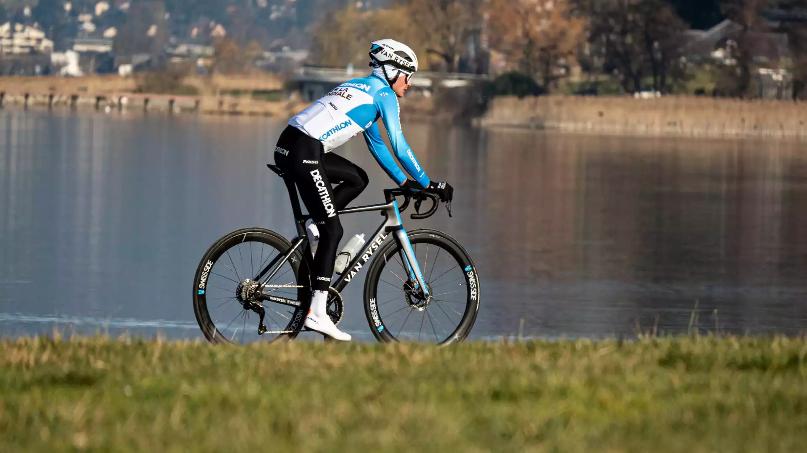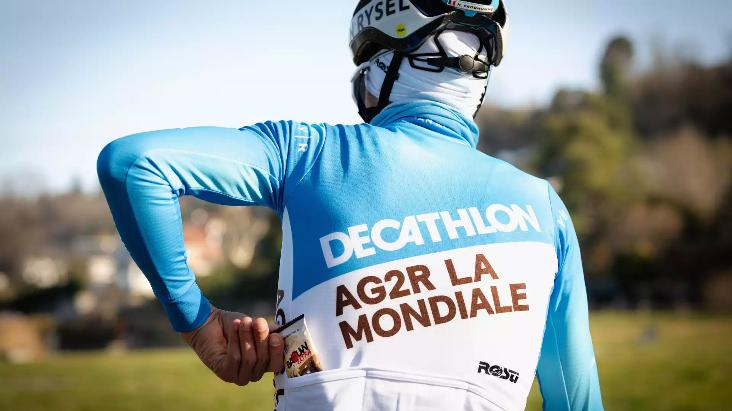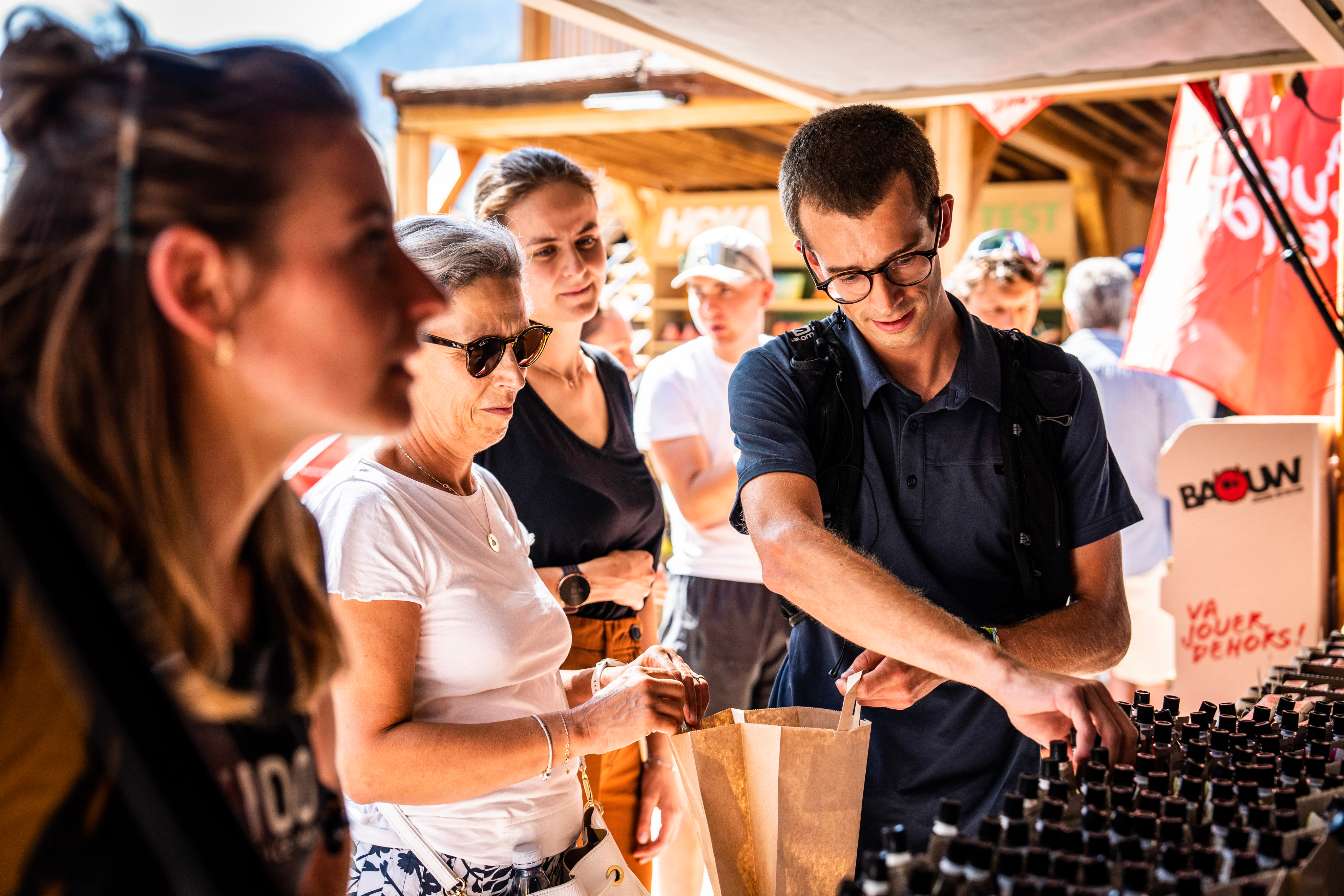The arrival of fine weather heralds the return of long bike rides in style. So if, like us on the Baouw team, you're planning to take your legs out for a spin on France's most beautiful roads this summer, you've come to the right place. With the help of our baouwer and professional cyclist, Nicolas Prodhomme, we're going to give you all the tips you need to achieve your goal.
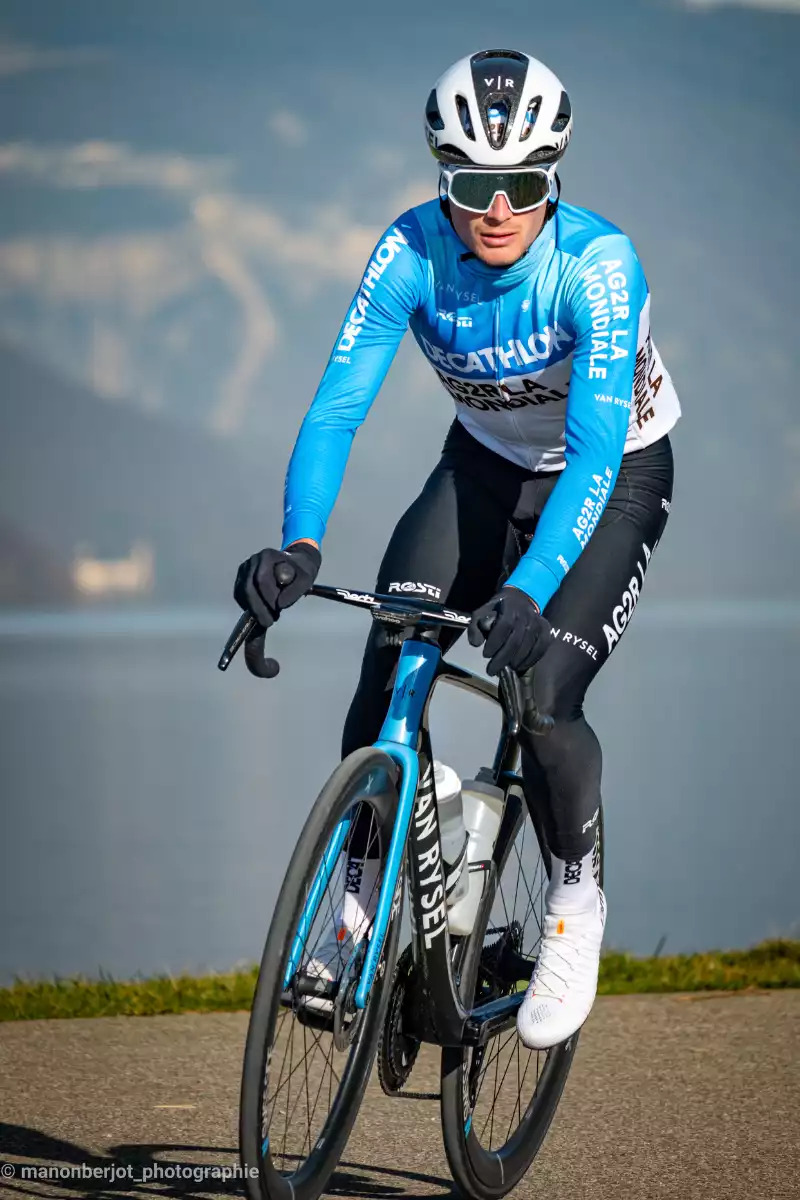
Who is Nicolas Prodhomme?
Tombé dans la marmite du vélo dès son plus jeune âge, Nicolas fait ses classes façon hédoniste, sur les routes de sa Normandie natale.
Having fun outdoors, against all odds. It wasn't until he was 16 that his raw talent was recognized. The starting point for his performance approach. Highly visible during his junior years, he continued his studies in parallel with a BTS apprenticeship, 5 years during which he built and nurtured his high-level project. With his diploma in hand, everything accelerated. He joined the antechamber of the AG2R professional team in Chambéry. One step closer to his dream.
In 2021, his dream comes true. Nicolas wins his first professional contract at the age of 24 with the AG2R Citroën team, now Decathlon AG2R la mondiale. A team in which he continues to grow as an athlete and as a man.
After having performed on the greatest tours and before shining this summer on the roads of the Tour de France, Nicolas gives you his precious advice on how to best prepare and succeed in your cyclo-sport.
Tip 1: Plan your training around your schedule
'It's essential to choose an achievable goal. To do this, you need to take into account the time you have to allocate to your preparation and training in your daily life: 2h? 5h? 10h ? 15h ?. Find the best balance between work, family life and sport. As far as possible, avoid sport interfering with the rest and your life balance. Choosing the right goal is the first step towards achieving it. Don't be too ambitious. Too much is often the enemy of good.'
Tip 2: Train specifically for the race you're preparing.
'Choosing your cyclo according to your running profile, what you like to do and training according to the race format and profile, that's being specific. Specific training is one of the major keys to achieving your goal. Depending on the type of cyclo-sportive you've chosen: lowland, hilly, mid-mountain, high mountain... you'll be able to organize outings according to its profile. For example, if you've signed up for a 150km, 3,000m climb, you can complete 3 consecutive outings of 50km, 1,000m climb, on Friday, Saturday and Sunday, 2 weeks before your goal.'
Tip 3: Incorporate anaerobic training into your preparation
'Even if you're preparing for long-distance events and the majority of your race will be run at low intensity, it's always a good idea to add a little variety to your training to have fun and work on other performance parameters. Doing PMA (maximum aerobic power) sessions will develop your physiological qualities and, in the long run, enable you to cope better with the changes in pace associated with the gradient of a mountain pass. Strava segments can be a way of adding variety and intensity to your training without getting too heady. In fact, I've set up a public account where enthusiasts can find my workouts and draw inspiration from them - with a pinch of salt, of course, because that's what I do for a living. But don't forget that low-intensity volume remains the priority.'
Tip 4: Train yourself to eat carbohydrates.
'It's very important, even in training, to practice eating carbohydrates during exercise, to get your body used to assimilating them, and to be ready on D-day to meet the intensity of effort required by the event you'll be taking part in.
To avoid hypoglycemia, give priority to products with a relatively moderate glycemic index, which will enable you to smooth out your blood sugar curve and maintain a constant effort. For each of your long rides, get used to eating on the bike.'
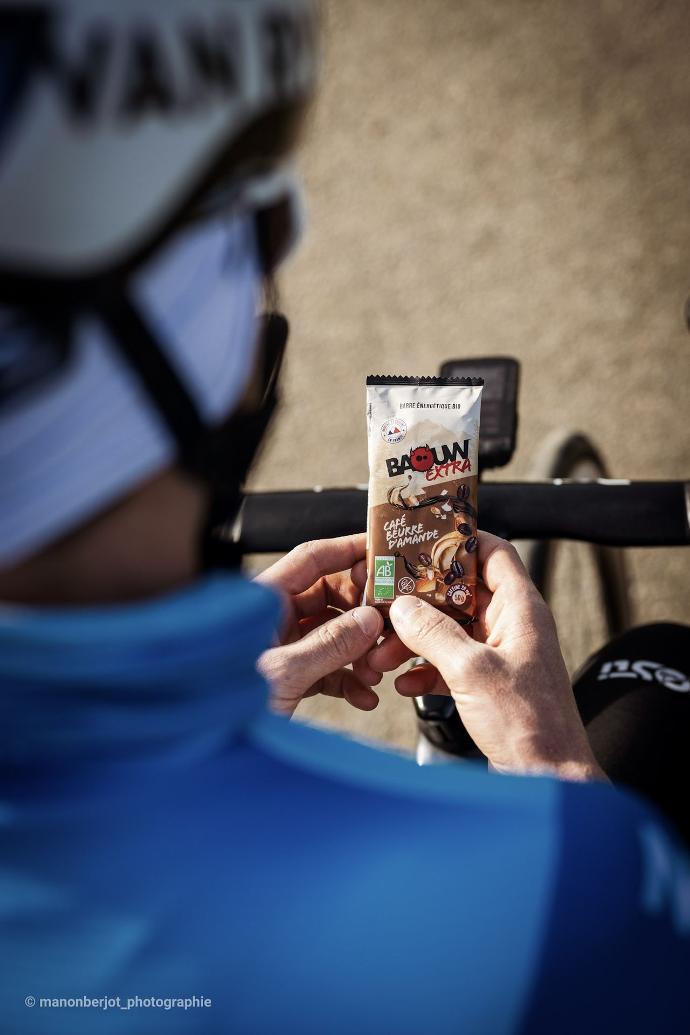
Tip 5: Favour solid foods at the start of the race.
'At the start of the race, your stomach and digestive system will still be able to tolerate solid foods. The advantage of cycling, which is a supported sport, is that you can be more imaginative and vary your diet much more than in running, for example. I try to favor solids as much as possible at the start of the race. I also stick to solids until around 10km from a difficulty, i.e. between 20 and 25' from the foot of a pass, to give myself time to digest and assimilate what I've just eaten. On the other hand, on a mountain pass, you need to give priority to products that can be assimilated quickly, and in this case sont super intéressants. '
Tip 6: Eat right from the start of the race and set up an eating routine.
'Remember to eat very early on, right from the start of the race, in the first half-hour. Eat before you're hungry, to make sure you smooth out your blood sugar curve and maintain a constant effort without a dip. In the professional world, at every race, there are cards on the gallows so you know what to eat and when. This can be a good way of maintaining your routine and, above all, remembering to eat. For my part, I run at a minimum of 70g of carbohydrates per hour, which is equivalent to consuming 500ml of Baouw energy gels diluted in water in the form of a drink and an .'
Tip 7: Supplement your carbohydrate intake with liquids
'The longer the effort, the more difficult it will be to maintain your eating routine, especially your solid intake. You'll have to adapt to the way you feel. In this case, supplementing or replacing carbohydrate intake with liquid can be a good solution. With Baouw's “Pro Series” drinks, I can ideally supplement my energy intake with the isotonic drink, which gives me 45g of carbohydrates in a 500ml can. The “Pro Series” are test recipes, under development with athletes. Depending on the results and their feedback, they may or may not see the light of day in the coming months.'
Marion Counil's view
Our nutrition specialist is a dietician-nutritionist, as well as being a seasoned and passionate sportswoman. She gives you her 3 essential tips to make the most of your cyclo.
- Don't take an energy drink or gel with a high GI (glycemic index) just before your effort: the time it takes for glucose to reach the bloodstream is difficult to anticipate. This could lead to hyperglycemia or hypoglycemia before the start of your ride, which would be counter-productive to your performance.
- Don't experiment with new foods just before your competition. Stick to a familiar diet that you're used to and that you digest properly. For example, avoid coffee just before exercise if you're not used to drinking it. This could cause heartburn and digestive problems.
- Eat your last complete meal more than 2 hours before your effort. The optimum time for digestion is between 2 and 3 hours before a competition.
Put some Baouw in your bags
Why Baouw?
'I make a point of honour of the quality of my daily diet. Baouw's values fit in perfectly with my approach to health and performance. With Baouw products, I indulge myself and do good for my head and body at the same time. And when you like to play outside, Baouw is the obvious choice.'
'I discovered Baouw because of my curiosity. I love varying tastes and textures, so I've tested a lot of nutrition brands, but when I discovered Baouw, I realized that a single brand with a very extensive product range could satisfy my needs. Nutrition is extremely important in cycling, as it's a high-energy sport that requires you to consume a large number of calories to meet your needs. So you need rich products, but with gourmet, comforting flavours. This is the strength of Baouw products. Gustatory pleasure is central.'
I use the products during each of my workouts, particularly the extra bars and the bars according to the intensity of the effort. When the intensity is low, I concentrate on the bars. As the intensity increases, I switch to the gels.
The 'Pro Series' drinks, currently reserved for Baouw athletes, are a perfect complement to the existing products. Rich in proteins and electrolytes, they provide an undeniable plus for optimizing recovery after each workout.
Mon produit préféré ? La barre Extra, Café - Beurre d’amande ! J’adore cette barre ! Je pourrais ne manger que ça même si j’essaye de varier pour ne pas écouler tous leurs stocks. (rires) »
nicolas' nutritional routine
30' before the start: 1 coffee-almond butter extra bar
During the effort: 1 energy gel and 1 extra bar alternately every 30' / 500 to 750ml per hour of energy gel diluted in water (depending on heat conditions).
For a carbohydrate intake of between 60g and 90g (depending on your tolerance).
As a reminder, Nicolas is a professional runner and his carbohydrate intake is high. For an average runner, consuming between 30g and 60g of carbohydrates is sufficient for an effort of this type.
The final word?
'Today, nutrition is an integral part of performance, and professional cycling teams have understood this very well. Within my team, a whole team of nutrition specialists advise us on a daily basis to calculate our needs and maximize our recovery. Thanks to Baouw's support and guidance, I'm able to optimize my nutrition and preserve my health, while enjoying myself.'
©Manonberjot_photography



